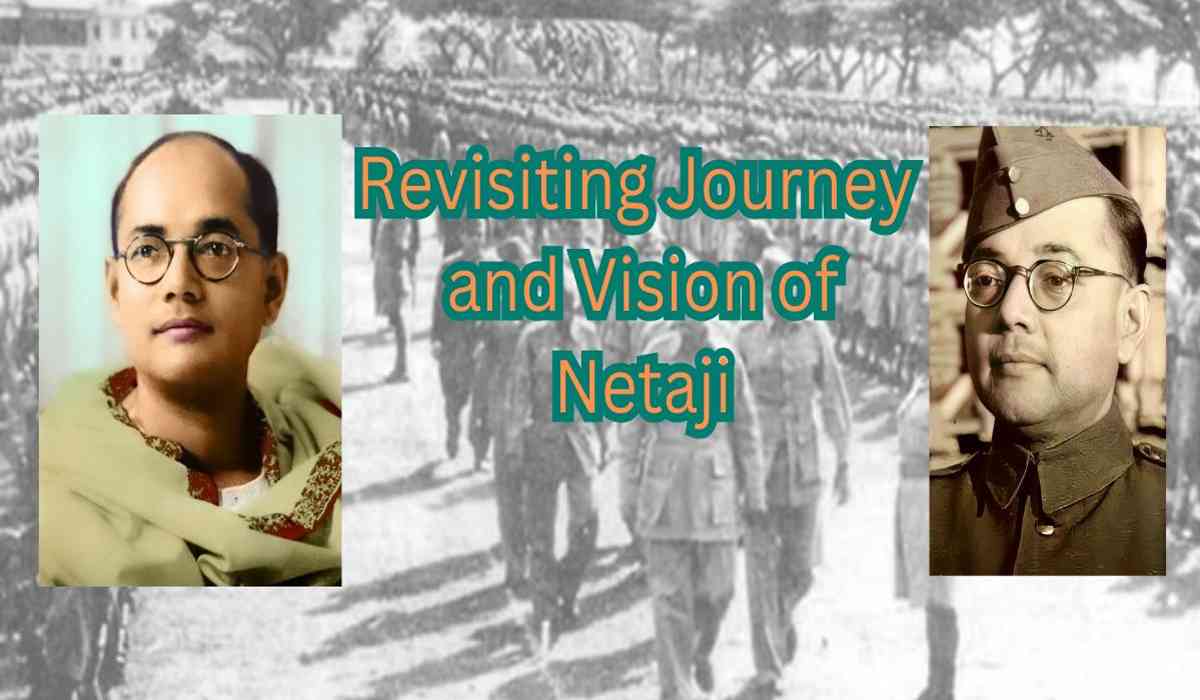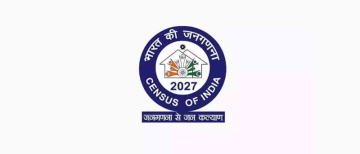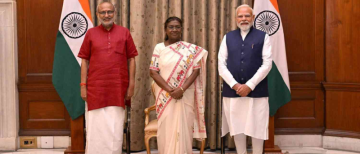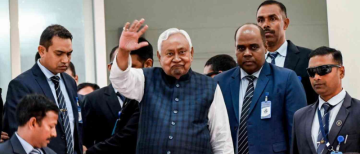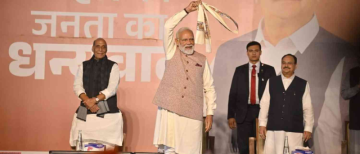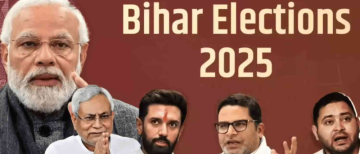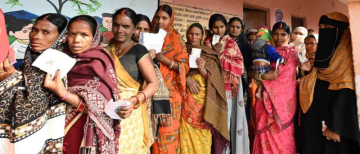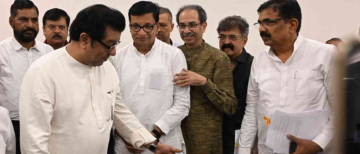From escaping house arrest to becoming one of the first Indians to ride a submarine, Netaji Subhas Chandra Bose’s journey will easily beat any film. While he had the courage to reshape the freedom struggle, he also had the vision to make India great. So, on the eve of Parakram Divas, let’s take a moment to revisit Netaji's journey and vision.
Journey of Netaji Subhas Chandra Bose Early Life
Subhas Chandra Bose was born into a wealthy Bengali family in Cuttack, Odisha, in 1902. He secured 4th rank in the Indian Civil Service Examination. However, his love for his country and dedication to the freedom struggle made him resign in 1921.
Political Journey in India
In 1921, Netaji joined the nationalist movement led by the Indian National Congress. His political guru was Chittaranjan Das. At a very young age, he became mayor of Kolkata in 1923.
He presided over the Indian National Congress twice in 1938 and 1939 respectively. However, the growing disparity of ideology between Gandhiji and Netaji made him leave INA and establish his own party named Forward Block in 1939.
Disappearance from House Arrest
In 1940, Bose was arrested on the backdrop of an Anti-Compromise Conference at Ramgarh. However, after a hunger strike, Netaji was released from prison and placed under house arrest.
In 1941, Bose reportedly escaped from his house and reached Peshawar under the pseudonym Ziauddin with the help of Bhagat Ram.
Meeting with Hitler
Initially, Bose wanted to approach Russia to assist India in its freedom struggle. But, as Russia Joined the Allies in World War II, Bose had to approach Germany.
Bose fled to Germany and met Hitler under the pseudonym Orlando Mazzotta. With the help of Hitler, Bose formed the ‘Freedom Army’ consisting of prisoners of war of Indian origin captured by Germany and Italy. It was the people of Germany who gave Bose the title “Netaji”.
Foundation of Azad Hind Fauz
In the year 1943, Bose left Germany and reached Japan and then Singapore. In Japan, Bose met Japanese Prime Minister Tojo Under the pseudonym Abid Hussain.
In Singapore, Bose met the founder of the Indian National Army, Rashbehari Bose and took the leadership of the Indian National Army.
Journey of Indian National Army
In the same year 1943, Bose formed a ‘Provisional Government’ for Free India in Singapore. There he gave the famous slogan “Give me blood, I will give you freedom”.
In the year 1944, a war against Britain and the United States was declared. The major achievement of INA was the hoisting of the INA flag on the Indian mainland at Manipur by Colonel Malik.
As Japan surrendered in WWII in 1945, the support system of INA was disrupted as well.
Unsolved Death Mystery
On 18th August 1945, Bose mysteriously died in an air crash in Taipei, Taiwan. However, the death of Netaji is still a mystery. From time to time, people have come up with rumours and conspiracy theories. But none of those hold the ground.
In the year 2015, the Government of West Bengal made public 64 files on Netaji’s death. But that also sparked debate as the Bose family accused the government of spying on them.
Socio-Political Ideology of Netaji Subhas Chandra Bose
Social Ideology
On Religion: Under his parental influence, Subhas Bose has developed a religious and spiritual mindset. And this was further elevated by the teachings of Ramkrishna Paramahansa and Vivekananda.
However, as a secular person, Bose dreamt of a neutral and impartial Government for a free India. He also believed that religion is a private matter and not an affair of the State.
On Caste System: Bose was a stern believer in the abolition of the caste system in India. He supported inter-caste marriage and valued the upliftment of the so-called untouchables.
On Women Empowerment: Bose believed that true liberation is possible only when women are free from social, economic and political shackles. He gave special importance to women’s education. He was a supporter of widow remarriage and the abolition of the Purdah system.
Bose formed a separate regiment for women called the Rani Jhansi Regiment under the leadership of Lakshmi Sahgal.
On Education: According to Bose, education was necessary for character building and the all-round development of human life. He not only advocated for mass primary education for all but also was in favour of higher education for deserving meritorious and intelligent students. Bose realised that education is the key to bringing a sense of national unity and solidarity among Indians.
Economic Ideology
According to Subhas Chandra Bose, economic freedom was the essence of social and political freedom. He was in favour of economic reconstruction and industrialisation.
Bose classified industries into three categories, namely Heavy Industries, Medium Scale and Cottage Industries. According to him, heavy industries are the backbone of rapid economic development.
Bose constituted a Planning Committee under the Chairmanship of Jawaharlal Nehru for rapid industrialisation of India
Political Ideology
On Socialism: Bose wanted to create an egalitarian society. He wanted the privileges of landlords, capitalists and higher classes in society shall be reduced.
On Democracy: Due to the influence of Swami Vivekananda, Subhas developed immense faith in the power of the people. He was in favour of democracy as the acceptable political system of India.
However, Bose also believed that in the initial phase, democracy would not be enough for nation-building. According to him, India needs “a synthesis of Socialism and Fascism”.
Conclusion
In 2021, the Government of India announced that 23rd January will be celebrated as “Parakram Diwas” or the Day of Valour from now on. This announcement was made to celebrate the birth anniversary of Netaji. Bose’s death might still be a mystery to many of us but his vision, ideology and his dedication to a free India is still and forever will be alive in our hearts.
With inputs from agencies
Image Source: Multiple agencies
© Copyright 2024. All Rights Reserved Powered by Vygr Media.
Author's Bio
The author is a freelance content writer and a UPSC aspirant. She specializes in entertainment, travel and lifestyle and finance niche.

